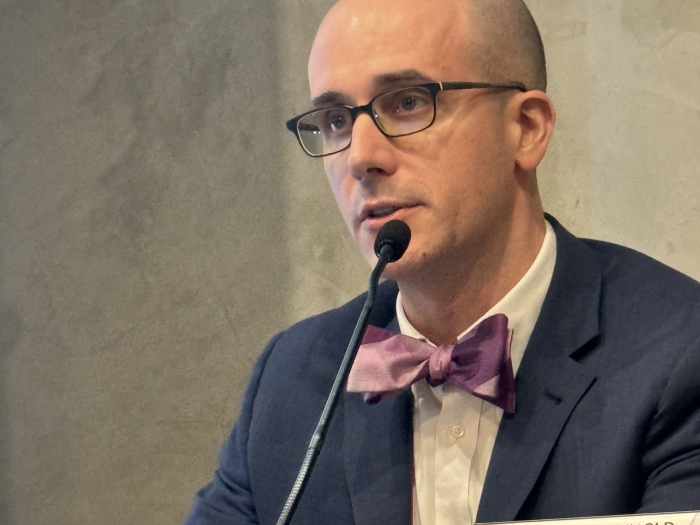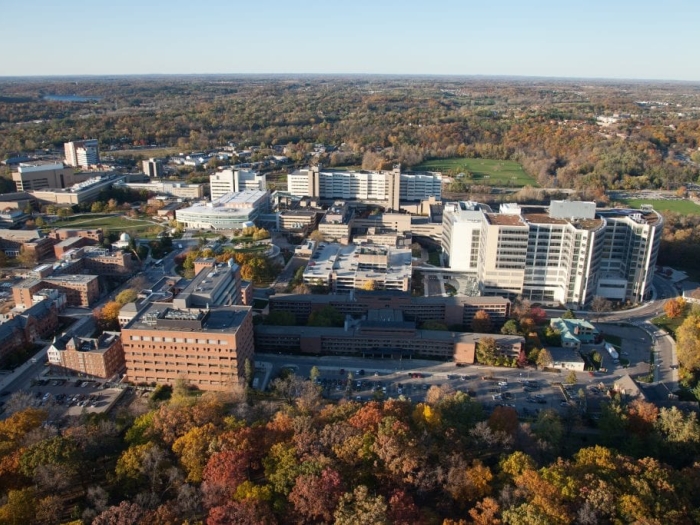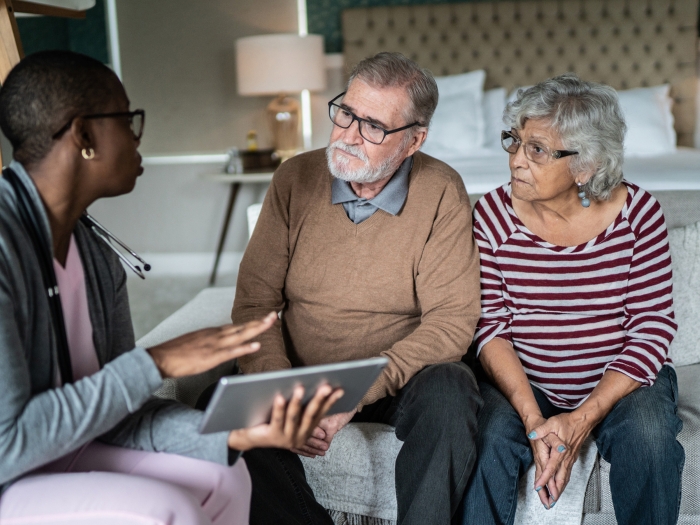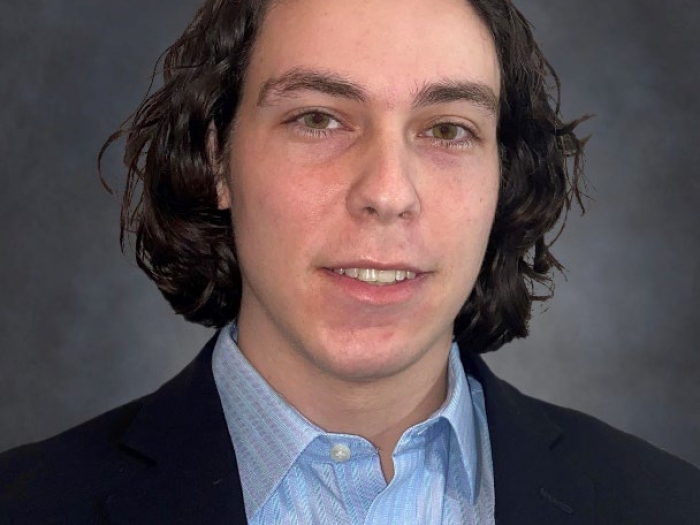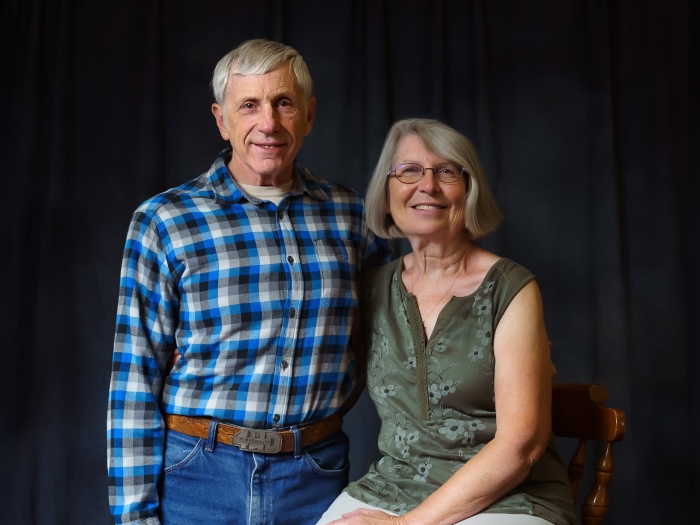"Study abroad" isn't something most students can say they did in medical school. This summer I had the opportunity to rotate in Brazil entirely in Portuguese to bolster my language skills and cultural humility to serve Portuguese-speaking patients. This experience was part of my broader goal to serve patients in their preferred language and to build an impactful career in global health.
At the entrance of the Orthopaedics and Traumatology Institute, affiliate of the Hospital das Clínicas and University of São Paulo School of Medicine.
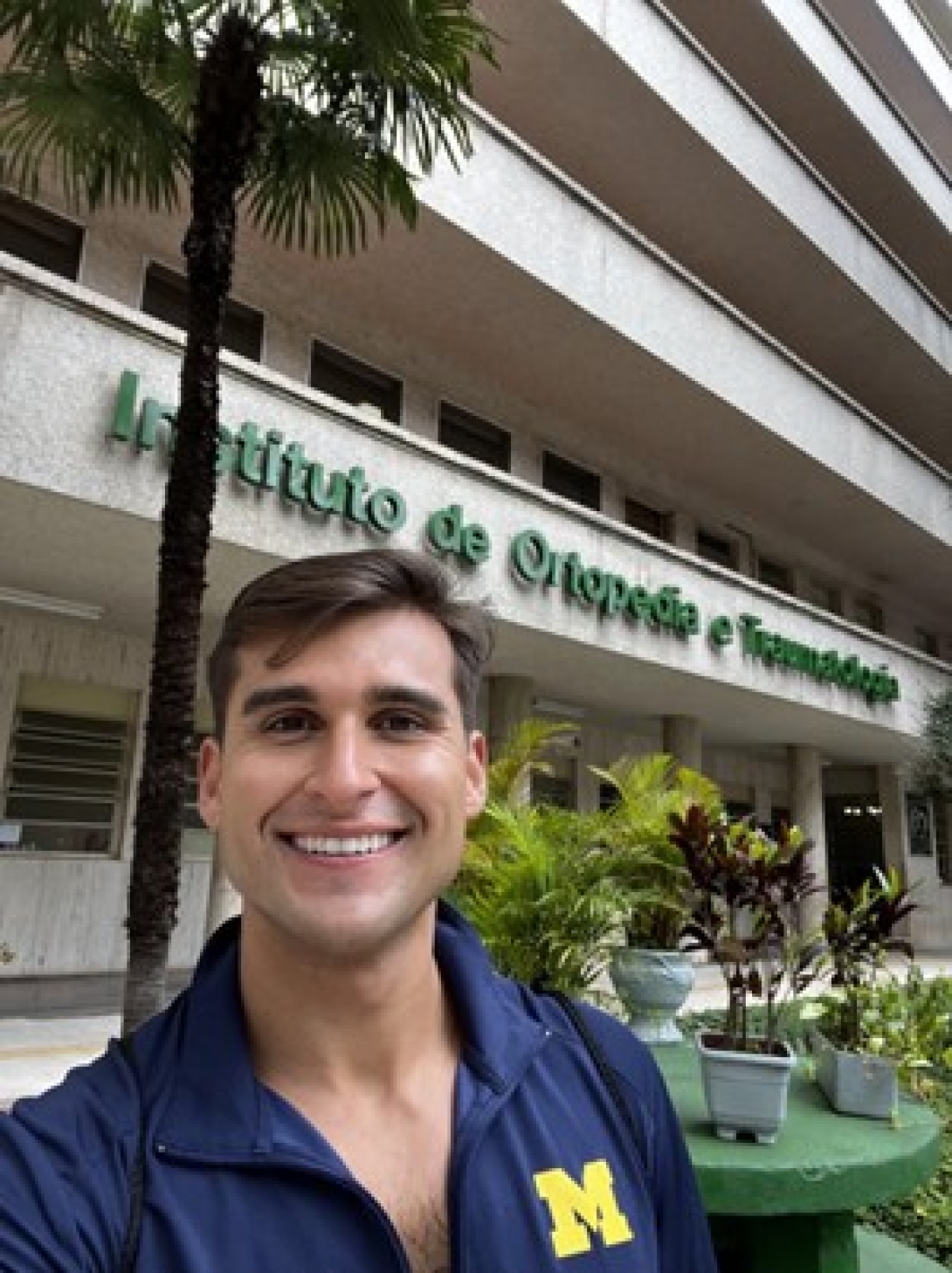
It has been estimated that more than 25 million people in the United States have limited English proficiency and regularly struggle to communicate with their health care providers. As the United States becomes more linguistically diverse, our health care system must continue to adapt to serve the country.
The desire to serve patients with limited English proficiency is one of my strongest motivators for entering the medical profession. I grew up in a bilingual household where my grandmother, who immigrated from Cuba and never felt confident in English, always felt uncomfortable seeing physicians who did not speak Spanish. The fact that mastery of a patient's preferred language not only improves clinical efficiency and quality of care but also enriches the patient-physician relationship has inspired me to study world languages and global health care systems.
As an undergraduate at Harvard, more than half of my courses were in foreign languages: Spanish, French, Portuguese or Mandarin Chinese. I took literature and history courses about the lands where these languages are spoken alongside organic chemistry, biology and physics with the hope of one day bringing them together in service to patients. I volunteered as a multilingual interpreter at Massachusetts General Hospital and spent a summer researching the Zika Virus in Brazil during the 2016 Olympic games. I spent time at clinics, shelters and food banks in the Boston-area that served predominantly Portuguese-speaking communities. Not only did these include Brazilians, but also immigrants from rural Portugal, Cape Verde, Angola, Mozambique, and São Tomé and Príncipe. After graduation, I pursued a master's degree in health economics and management at Peking University in Beijing and wrote a thesis comparing health care systems in America, China and the U.K. My goal in these endeavors abroad was to evaluate the physician and patient experience in diverse health care delivery ecosystems.
When applying to medical school, the opportunity to develop clinical skills in a multilingual context and to pursue global health was a top priority and one of the main reasons I decided to attend University of Michigan Medical School. Not only does our school offer programming in Medical Spanish, Chinese and French, but as a clinical student I applied this skill set in real patient care, especially in the emergency department, primary care clinics, and the Labor and Delivery service during the OB/GYN rotation. Moreover, Michigan's accelerated pre-clinical phase opens our third and fourth years (called the "Branches") to customizable clinical, research and entrepreneurial opportunities that are rare at other medical schools. Global REACH, Michigan Medicine's international office, provides unparalleled administrative and financial support for medical students dedicated to projects pursuing global health equity.
Thanks to the support of Global REACH's Dr. Joseph Kolars, Dr. Denise Tate and Tania Piotrowski; U-M Orthopedic Surgery Department's Dr. Jaimo Ahn, Dr. David Walton and Dr. Eileen Crawford; and University of São Paulo's School of Medicine's Dr. Júlia D'Andrea Greve and Dr. Linamara Rizzo Battistella, I designed a four-week clinical program in comprehensive musculoskeletal medicine and orthopaedic surgery in São Paulo, Brazil at the Hospital das Clínicas, the largest hospital system in the Western Hemisphere and affiliate of the University of São Paulo School of Medicine (FMUSP).
During my rotation in Brazil, I rotated through operating rooms, inpatient floors and outpatient clinics, including orthopaedic trauma, sports orthopaedics, spinal cord injury, traumatic brain injury and amputations. I also had contact with emergency rooms and primary care clinics to broaden my exposure to the Brazilian health care system as a whole. Rotating in a city as large and dense as São Paulo offers a wide range of clinical scenarios unlikely to be seen in Michigan or even in the United States! For example, one patient presented with cervical spine trauma after a jackfruit - a tropical fruit weighing up to 80lbs - fell from a tree and struck his head while he was strolling on the sidewalk. Culture plays a significant role in medicine as well. Given sport, music and dance are salient features of Brazilian society, clinical research often explores topics in soccer, volleyball, footvolley, Futsal and samba.
My rotation in São Paulo also exposed me to how medicine is studied and practiced in Brazil. Learning about the Brazilian medical education system made me reflect on my educational experience at Michigan and the American system more broadly. At the end of my rotation, I gave a presentation in Portuguese to medical students, residents, attending physicians and researchers about American medical education. We exchanged so many interesting ideas and insights that we decided to build a formal program to connect our institutions at the trainee and faculty level to give continuity to these valuable conversations.
For me, medical school is about becoming the best doctor we can for our future patients. The opportunity to combine the clinical skill set I am learning at Michigan with my Portuguese language skills to care for patients in Brazil was by far the most impactful experience I have had during medical school. Not only did the experience improve my medical Portuguese, but I also feel more nimble navigating new clinical and administrative environments and better equipped to serve patients in high-volume settings. Additionally, given the stark differences in health care infrastructure, building bridges between American and Brazilian medical institutions offers the opportunity to share insights about best clinical practices and systemic design. Rotating at the University of São Paulo motivated me to continue mastering the skills necessary to serve vulnerable patients and to build on my career goals in health care delivery optimization.
I am so grateful for my mentors at the University of Michigan and University of São Paulo who support my academic and professional pursuits. When we say "Go Blue" it truly is a statement of family and community that spans across the globe. I am proud to be a Michigan Wolverine.
I am more than happy to speak with prospective or current students about Michigan. Please do not hesitate to reach out on LinkedIn, Instagram or Twitter!
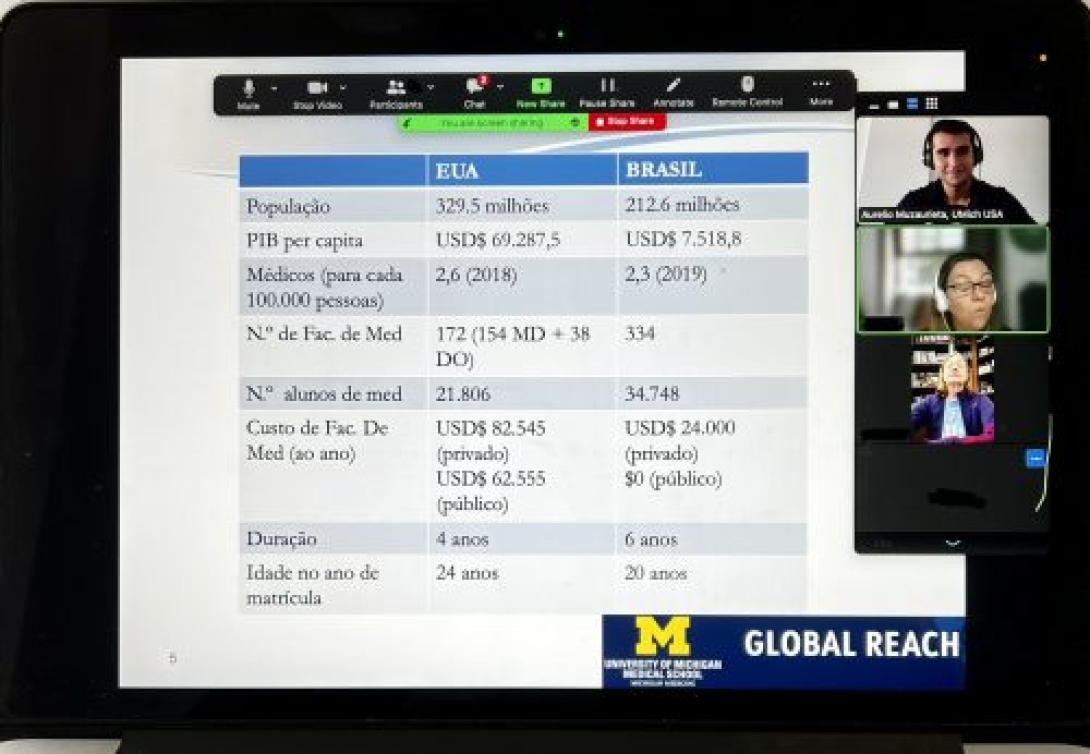
University of Michigan Medical School
Want top health & research news weekly? Sign up for Health Lab’s newsletters today!
